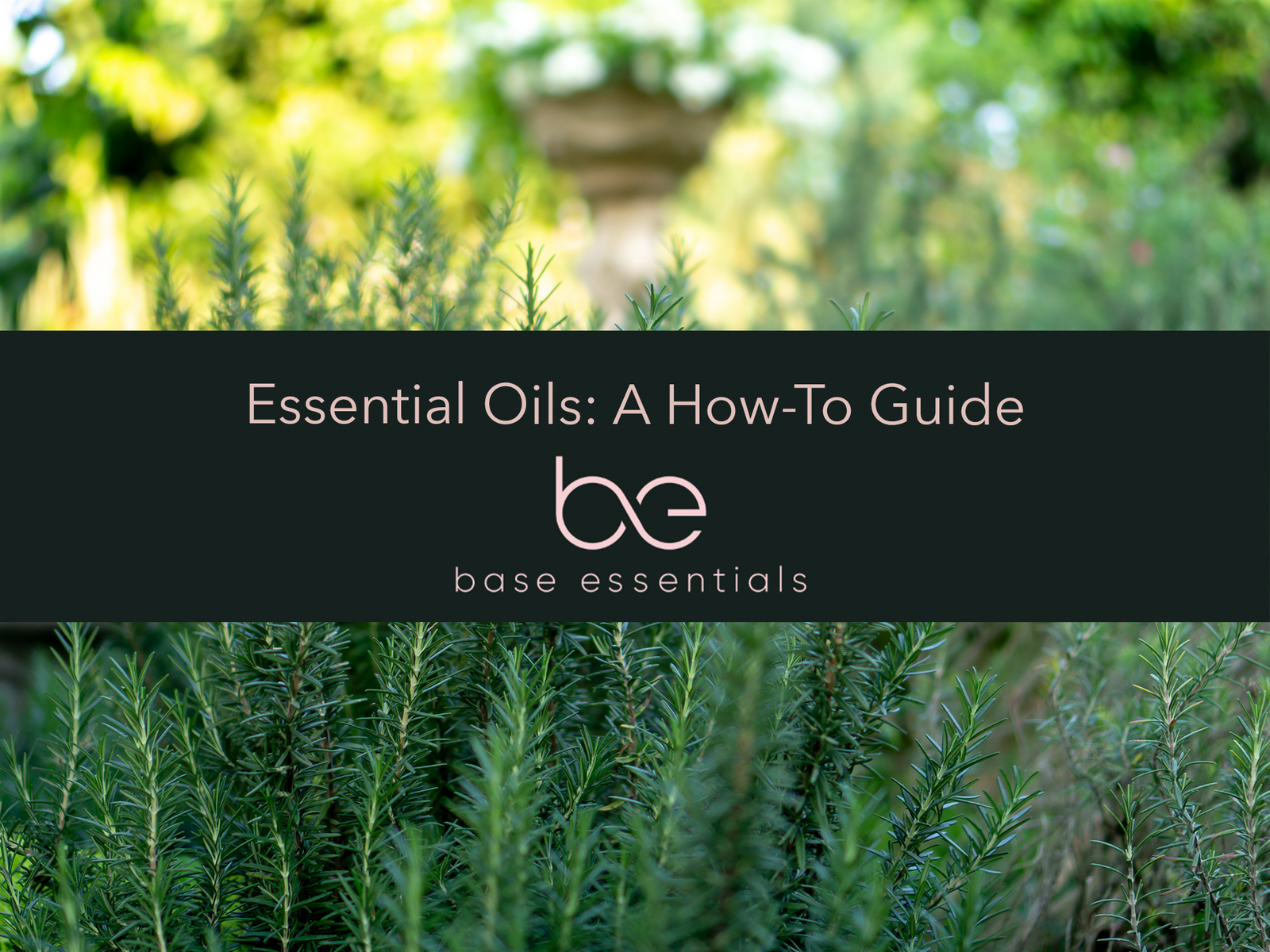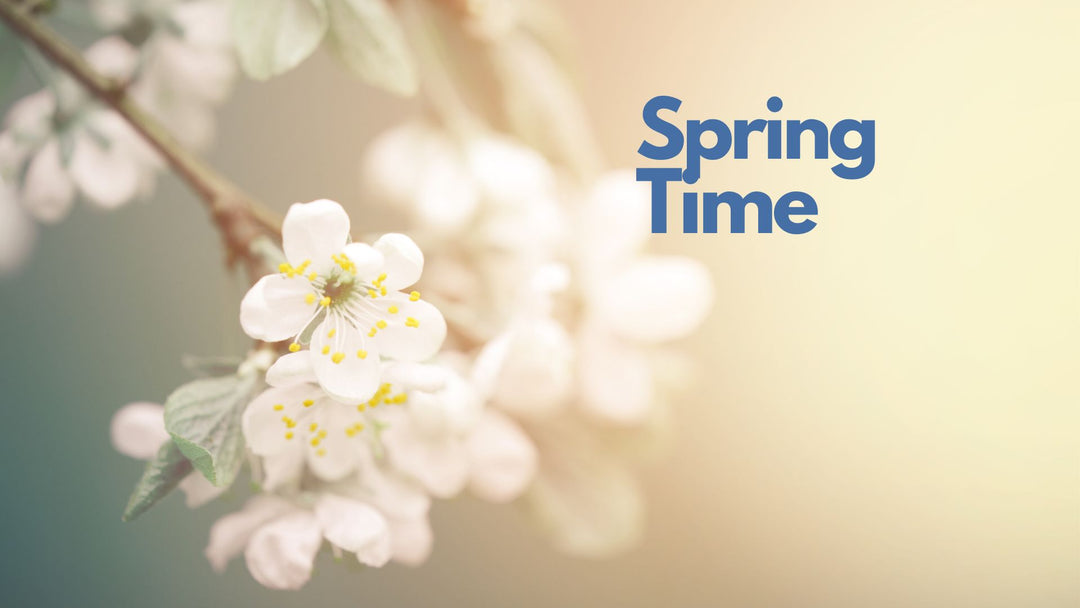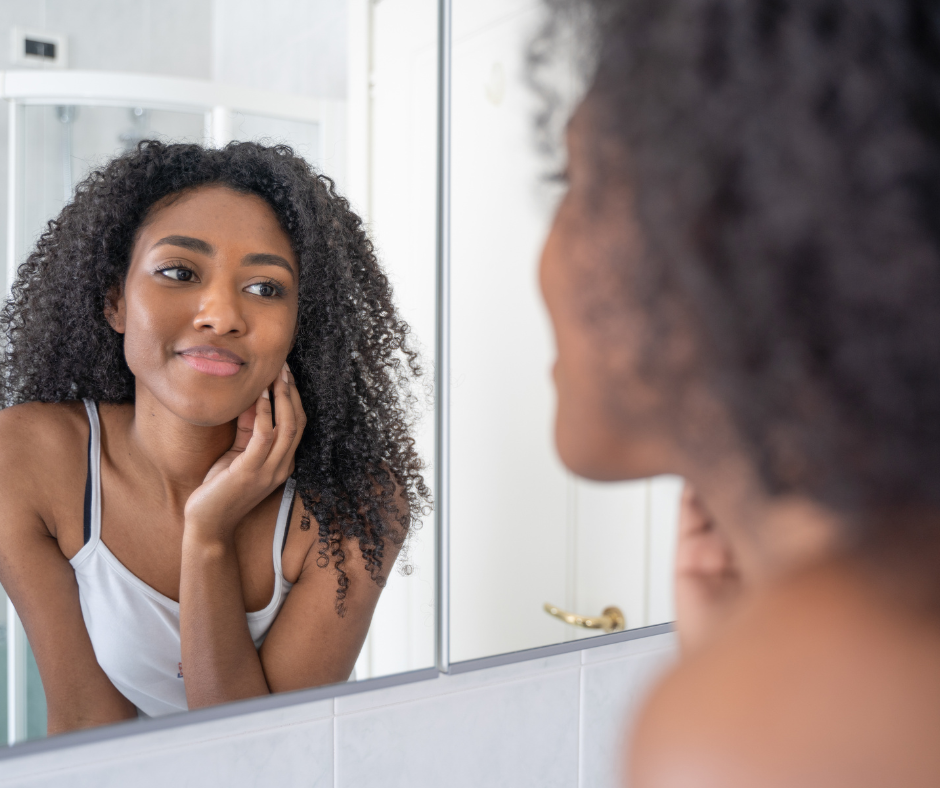Essential oils - A How To Guide

Essential oils are used by many different practitioners and in many personal care products across the world. There is a lot of advice online on how to use your essential oils, from topical use to aromatherapy. At Base Essentials, we believe it's best for you to discover what works for you! Refer to this how-to guide for ways you can experiment with your oil use.
Diffuser:
Diffusers will disperse the oils into the air to fill the room with the aroma of the oil of your choice. The great thing is that this can change depending on the day - you can put whatever oil you want into your diffuser depending on your mood! Diffusers convert the oil into microscopic droplets, and spray the then misted oil upwards into the air. The mist that is produced is pure, and can give any space a soothing, clean atmosphere that is natural and straight from the plant. Artificial air fresheners release chemicals, where diffusers do not. For this reason, diffusers have become increasingly popular. They are also safer than candles and incense, and are small and compact to fit nicely on a side table or on a countertop. Combine approximately 6-8 drops of the pure essential oil or pure essential oil blend of your choice into your Base Essentials Ultrasonic Ceramic Diffuser tank with 100 mL of water.
Inhalation:
It is common for people to inhale steamed oil in hot water. Simply add a few drops of oil to a bowl of hot water (be careful not to burn yourself!), and place a towel over your head so that it covers both you and the bowl. Inhale the steam deeply into your lungs. Close your eyes, and allow for this to be a few minutes of relaxation as the steam opens up your chest.
Bath and shower:
Adding a few drops of oil to a bath is a great way to do some self care! It is important to note that oils are not water soluble, and so simply adding them to your bath can be unsafe, as some oils when used directly on the skin can be irritating. Diluting your essential oils in bath soap or with a carrier oil by adding 5-10 drops of the essential oil of your choice to a tablespoon of either one will easily solve this problem. When soap dilutes into the bath, essential oils will disperse into the water. This will prevent the oils from separating and sitting at the top of the bath. We also recommend using pure carrier oils such as fractionated coconut oil or jojoba oil to dilute essential oils. Do not use corn starch, milk, or aloe vera!
You can also add a few drops of oil to the walls of your shower to create a steamy, spa-like experience.
Topical use:
Our skin is our body's largest organ, and what we apply to our skin enters our body through absorption. Hydrating our skin with restorative, natural medication is a great way to experience full body benefits. Oils can be used topically as a compress, as a massage, or simply as a naturally smelling perfume. Adding diluted oils to a warm compress cloth or as a massage oil can effectively treat areas of tension and soreness. The oil you use completely depends on the intention; for example, eucalyptus oil is cooling to tight muscles and reduces inflammation, whereas lavender oil is relaxing and calming.
Adding a few drops behind your ear or on your neck can act as a perfume. You can even add oil to a roller ball, and make your own carry on perfume applier!
Adding oil to your third eye and your chakras can be a great addition to meditation and yoga. Doing so can help you balance your energy and promote internal healing. See more information on using essential oils in tandem with spiritual wellness.
However you choose to use your oil is totally up to you, we are just here to help guide you back to base!






